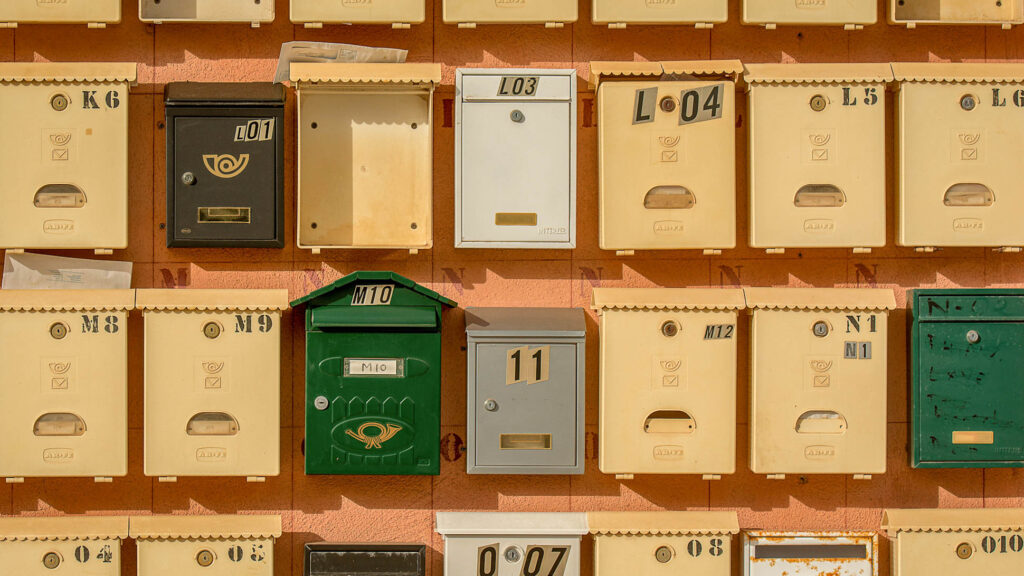
Owning a property in Italy means relying on local systems for post, internet, and phone lines. These services are essential not only for daily life but also for handling important communications such as tax notices and property bills.
To avoid delays and confusion, it’s worth understanding how they work. (See also: Foreign Buyer Practicalities: Residency, Visas, Inheritance).
The Italian Postal Service (Poste Italiane)
Poste Italiane is the Italian national postal operator. Beyond delivering letters and parcels, it also manages bill payments, insurance, and banking services through PostePay accounts.
- Expect slower delivery compared to some other countries.
- Registered mail (raccomandata) is commonly used for official communications.
- Many property-related notices, including tax reminders, are sent this way.
For time-sensitive documents, always choose registered or certified delivery options.
Certified Email (PEC)
Alongside the traditional post, Italy uses PEC (Posta Elettronica Certificata). This is a legally recognized email system that gives messages the same validity as registered mail.
Property owners often need PEC for:
- Communicating with the Comune or Agenzia delle Entrate
- Submitting official forms
- Receiving notices from service providers
(See our article: What is PEC?)
Landline and Internet Providers
In rural areas, property owners may find limited broadband options. Telecom Italia (TIM) remains the largest provider, but competitors such as Fastweb, Vodafone, and WindTre also operate across Italy.
- Fibre-optic is expanding, but many small towns still rely on ADSL or even mobile-based connections.
- Contracts usually require an Italian bank account for billing.
- Expect setup delays — several weeks is not unusual.
Mobile Services
SIM cards in Italy are easy to obtain from major operators like TIM, Vodafone, Iliad, and WindTre. Rates are competitive compared to many European countries. If you split your time between Italy and abroad, a prepaid SIM can be a flexible solution.
For long stays, having an Italian mobile number is almost essential since many services (including banks and utilities) require SMS verification.
Common Challenges
- Missed deliveries: If you’re not home, parcels may be left at the local post office.
- Language barriers: Online portals and bills are rarely available in English.
- Unreliable schedules: Technicians for internet or phone setup often work with broad appointment windows.
Useful Link
🌐 Poste Italiane – Official Website
